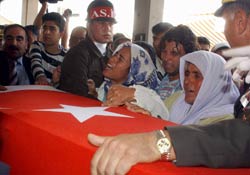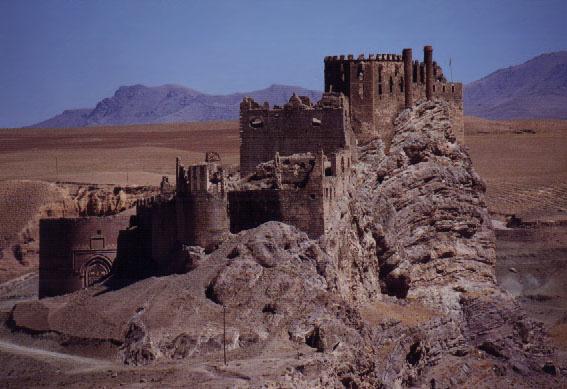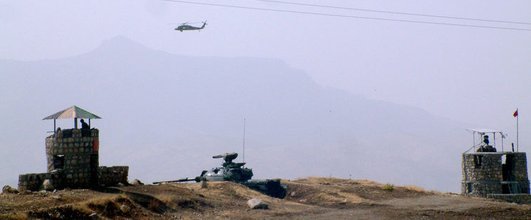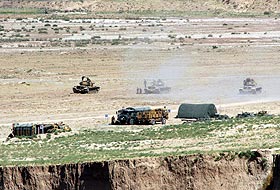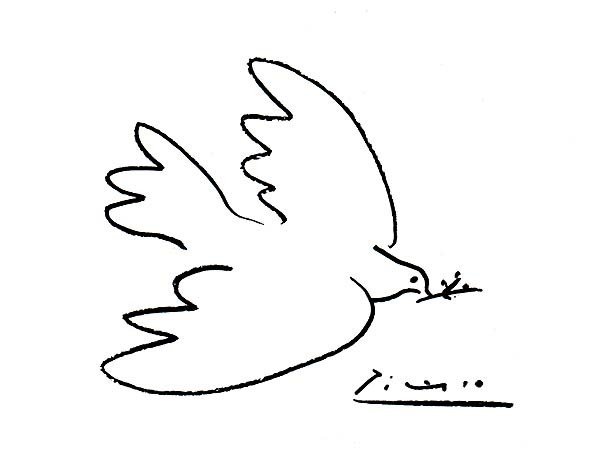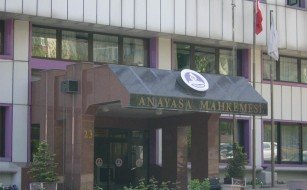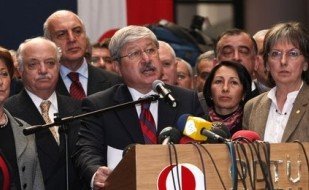It is expected that the Turkish parliament will meet and discuss a bill on cross-border operations in Northern Iraq as early as today (15 October).
Now that the religious holiday marking the end of Ramazan has ended, the cabinet will meet, and perhaps send a draft to parliament on the same day, said Sadullah Ergin, the leader of the Justice and Development Party's (AKP) group in parliament.
There have been international efforts to persuade Turkey not to enter Northern Iraq.
Iraq: Operations not a solution
Falah Mustafa Bakir, responsible for Foreign Affairs in the regional government of Northern Iraq, has said that they are not providing the PKK with support and shelter. He expressed Iraq's desire to maintain good relations with all its neighbours, adding, "and in the same way we do not want any country to become involved in our domestic affairs. We expect respect for Iraq's territorial unity and sovereignty."
Sabah Omran, Iraq's ambassador in Ankara, argued that cross-border operations had no legal basis, and that a unilateral operation by Turkey would represent a violation of Iraq's sovereignty.
The spokesperson of the Kurdish government in Northern Iraq, Cemal Abdullah, said: "Carrying out military operations will not help to solve the security problem at our borders. There must be other ways to solve the problem, because it is also our problem."
Abdullah Salih, a Kurdish MP in the Iraqi parliament believes that Turkey will act on its threat. He also believes that the cross-border operations have nothing to do with the PKK, but are related to future developments in the region.
US diplomatic activity increased
Meanwhile, according to the British Observer and the Turkish Daily News, US diplomatic activity has been at a peak this weekend, trying to persuade Turkey to reconsider.
Yesterday's Observer (14 October) reported that an unscheduled visit to Turkey was made by senior US officials.
US Secretary of State Condoleeza Rice has also spoken to President Abdullah Gül, Prime Minister Recep Tayyip Erdogan, and Minister of Foreign Affairs Ali Babacan by telephone, urging "restraint".
"Genocide" resolution has affected relations
US-Turkish relations are at a low as the Foreign Affairs Committee of the House of Representatives has passed a resolution to call the events of 1915, in which hundreds of thousands of Armenians were killed, a "genocide". The resolution was passed despite George Bush and other politicians appealing against the resolution.
Turkey has reacted to the resolution by considering measures to take against the US. First of all, a visit by Trade Minister Kursad Tuzmen to the USA was cancelled, along with a conference being held by the Turkish-US Business Council.
The Observer reported, that other measures were planned:
"Other potential moves may include blocking US access to Incirlik air base, cancelling procurement contracts, scaling down bilateral visits, denying airspace to US aircraft and halting joint military exercises, say analysts and diplomats."
According to the Turkish Daily News, President Abdullah Gül had reacted to the passing of the resolution on Wednesday night, saying:
“Unfortunately, some politicians in the United States ignored appeals for common sense and once again moved to sacrifice big issues for petty games of domestic politics,” he said. "This is not an action that suits and benefits the representatives of a great power like the United States,” Gül added.
US Ambassador to Turkey, Ross Wilson, has also regretted the passing of the resolution. Turkey's ambassador in Washington, Nabi Sensoy, has been recalled to Turkey for an unspecified time.
US Military: Sympathy for Turkey
US military personnel, on the other hand, have expressed their sympathy with the Turks. General Bantz John Craddock, the US NATO Force Commander, said that there was not much the US could do to stop Turkey carrying out cross-border operations. It was clear that Ankara had a problem with the PKK, which used Northern Iraq as a base.
General David Petraeus, the Commander of US Forces in Iraq, acknowledged that "terrorists" trying to pass from Iraq to Turkey represented "a great threat". He said that he could understand Turkey's worries "very well".
EU: Operations would make Iraq's situation worse
However, Javier Solana, the High Representative for the Common Foreign and Security Policy of the EU, said: "In Iraq, the problem of security continues to be the most urgent problem. The possibility of further interference in Iraq's security is not to be welcomed."
Legal justification for operations
It is expected that Turkey will justify an approval of cross-border operations with Article 92 of the constitution, which allows the government to send soldiers across borders.
In order to legitimise the operation, it is expected that Turkey will refer to UN resolutions passed after the Al Qaida attacks on the twin towers in New York on 11 September 2001. (GG/AG)






